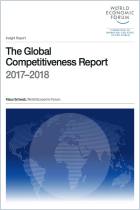Join getAbstract to access the summary!

Join getAbstract to access the summary!
World Economic Forum
The Global Competitiveness Report 2014–2015
World Economic Forum, 2014
What's inside?
Switzerland and Singapore again lead the world in economic competitiveness.
Recommendation
Each year, the World Economic Forum releases a weighty statistical report on global competitiveness that ranks the world’s economies. Just as in the previous report, Switzerland and Singapore occupy the top two places in the 2014-2015 report, with the United States third. What does all the number crunching of more than 100 factors in 144 countries and regions tell you? Well, rich nations are competitive and must do more; poor nations are not and also must do more. Despite media chatter on the relative rankings of who’s up and who’s down, the report’s comprehensive look at what it takes to compete in the global society offers numerous suggestions – some hackneyed, some insightful – that make this analysis more than just clickbait for wonks. getAbstract recommends this study to those who could use a compendium of comparative, international economic statistics and to those who absolutely must know the latest news about which countries are on top, which aren’t and why.
Summary
About the Author
The World Economic Forum is an independent global organization that engages leaders of business, politics, academia and society to improve the state of the world.






















Comment on this summary